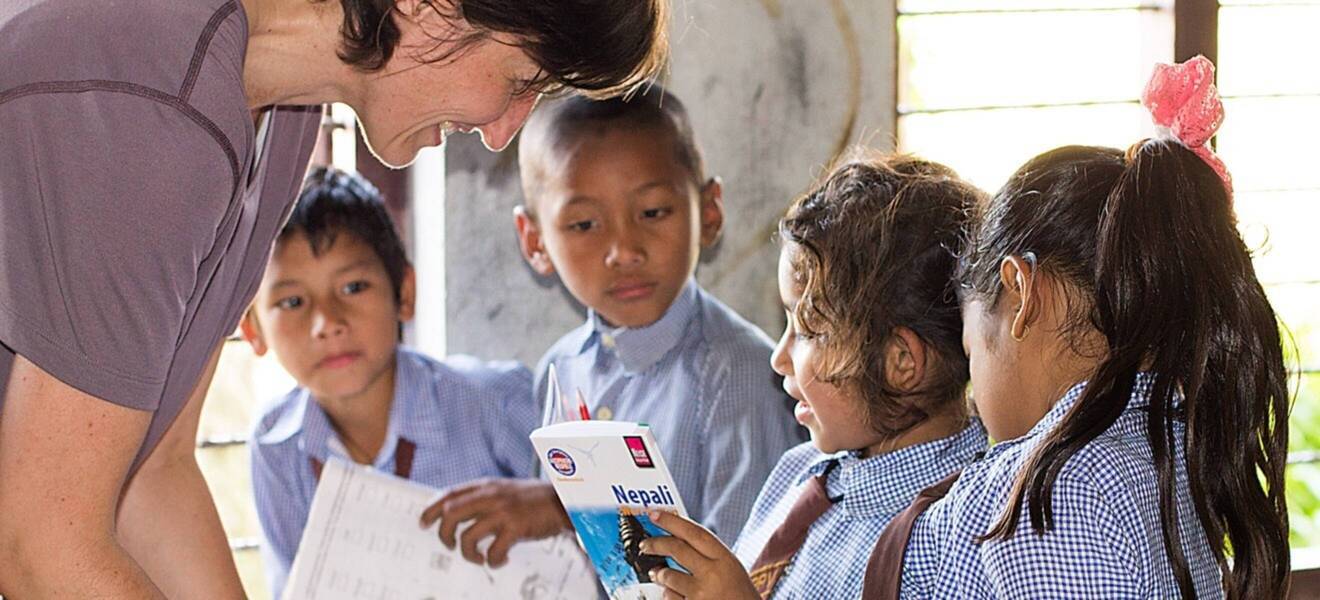01.08.2020/XNUMX/XNUMX / field reports
Volunteering in Nepal Field report
I've always felt comfortable there. The relative lack of structure is, of course, unusual for us. Appointments often don't come about, plans are constantly changing. The structures are not reliable. But because of the people, I could always trust that everything would go well. It's a strangely different attitude to life. I've experienced and learned so much. I am completely filled with all the experiences in Nepal.
Christine's time in Nepal
Christine tells about three different volunteer projects she supported in Nepal: she taught at a village school, supported the staff of a small hotel (suitable for internships) and took care of elephants in the paper mill (recycling project).
My first big trip
Despite my inexperience, I wanted to do voluntary service so that I could be there for people who were less fortunate than me. The volunteer work in Nepal was my first long-distance trip ever and therefore also the first trip to Asia. I had no idea what to expect. I couldn't tell if it would be dangerous to travel there alone as a woman. I knew almost nothing about Nepal, about the health risks, the climatic conditions and certainly nothing about how the people cope with their everyday life and what working and living conditions would await me.
First and foremost, it was my wish to want to do something for other people, and only secondarily was the wish to want to get to know the sights of the country beyond the place of work.
Arrival in Nepal
My arrival and departure did not go entirely smoothly, but that can be attributed to my own travel inexperience. Basically, I was always able to solve everything that had to be solved in a friendly atmosphere. The connection from the airport to the hotel and back again was reliable and pleasant.
The orientation program
I found the orientation program well organized. Sher personally did the first round with us, first in the immediate vicinity of the hotel, then to some important sights. I got an incredible number of impressions on these walks. At first you get a fright from the hustle and bustle in the streets, but it doesn't take long to gain confidence. You won't be hassled in all the jostling. The hustle and bustle doesn't seem to trigger any stress either. Nobody is irritable or unfriendly.
The colors and smells are particularly striking. It smells of spices, herbs and incense sticks. Colorful markets lean against the black facades. Goods are spread out everywhere, including on the streets, squares and sidewalks. People love bright colors for their clothes. Kathmandu looks colourful. In the streets you see cycle rickshaws, porters with incredibly large sacks on their backs or on their heads. Some carry a kind of yoke loaded on both sides.
The most amazing was a cyclist with a sofa, chair and footstool on the luggage rack, making his way through traffic. I could always just look and see what was happening in the streets. Sher showed and explained a lot to us, especially about the city's history, religions and life in Kathmandu.
New acquaintances
I was also allowed to take part in two tours with a guide, each with a German couple. The guide was also able to tell some exciting stories from mythology. I liked that.
I later met a married couple in Chitwan. It was like meeting old friends again. On the tours through Kathmandu I was able to immerse myself very nicely in the city and its culture(s), even if there is certainly still a lot more to learn and experience and this can only be a start. It was very impressive.
The two couples also broadened my horizons by telling them about their experiences. It was good that we were able to travel together. I would definitely have gotten lost all the time on my own.
First impressions of the destination
For the destination Bachhauli we had to change to another bus during the trip. That was no problem. At the bus stop in Bachhauli, I was then picked up in a pickup, together with a volunteer colleague from Hungary. First of all, we were taken to the office and received by Shiri. Then we were accommodated in a double room in the hotel.
After an invigorating lunch in the hotel restaurant, we were shown around the surrounding area: first to the elephant sanctuary, where a small baby elephant could be seen, then a short distance through the forest along the river to Sunset Point, where we were able to spot the first river crocodile.
My accommodation in Bachhauli
We explored the hotel grounds with the various buildings up to "Aama's house" ourselves. We also repeatedly met family members or employees, who introduced themselves by name. The names had been difficult for me to learn and remember at first. Conversely, the others felt the same about me and my name. But you can always ask for the name again and again. This is how the first contacts were made.
After we had switched sides, contact with all employees went very quickly. Everyone is open and shows it with a cheerful "Namaste!" and a smile on your face. The names were difficult for me, I really had to practice them. My own name wasn't easy for the others either - grin. For Topsi I was Kricki until the end. It's very happy and humorous.
The contacts can always be refreshed and deepened, when you wake up in the morning in the hotel kitchen and help with the work. (If you do not do that, you're not angry either - you're not asked to do anything or even forced to, but the relationship with the employees is different.) In silence, everyone is happy when they feel what they're doing on their own but would never claim anything.)
The daily routine in the hotel
Some employees are sometimes up as early as 5.00am. Preparations for breakfast in the restaurant begin at 6.00:XNUMX a.m. It's slowly getting light. In November there were a lot of guests in the house, so every extra hand was welcome. It's probably more leisurely in other months.
The women meet at the back of "Aama's house" from 7 a.m. and clean the vegetables for the first meal at 10 a.m. There is milk tea for breakfast. Then the cleaning team sets off, makes new beds and cleans the rooms and hallways. Here, too, there was a lot of work to be done, because many guests only stop at the hotel for a short time on their round trip. Here, too, things are certainly more leisurely in other months.
If I ever needed a coffee before work in the morning or toast with an egg because I'm not used to going to work without breakfast, it was always possible in the hotel restaurant. I was treated touchingly: "Are you hungry? Sit down, I'll bring you something in a moment." At home, I'm not used to the kind of attention I received there. It's very loving here.
I have often marveled at the men. There's teasing, but no macho rhetoric, no conceit or arrogance. No one feels superior to certain jobs (e.g. cleaning work). When I started a job, someone else usually came along so as not to leave me alone.
If a job doesn't get done, it's most likely due to a lack of perfectionism. I have never experienced a work being rejected out of arrogance. That didn't happen. What had to be done was done. Everyone was striving to do well in their field of work.
The equipment of the hotel
Hotel accommodation is very comfortable. There is a warm shower and a clean toilet with toilet paper. You have a closet for your things and plenty of space. This can help you get used to it. However, there is a risk of slipping into tourist mode, which makes it difficult to switch sides, because as a volunteer you actually belong on the side of the staff. But that doesn't feel like it in the hotel at first. We ate our first meal in the hotel restaurant, so we were served by exactly the people we were supposed to be helping out. We wanted to change that. To change that, after the garden party in the evening (which we were also allowed to enjoy like tourists) we helped out with cleaning up and washing the dishes. That was good. Everyone was happy about it. We came into contact with the employees and had completed the change of sides.
My change to host family
Weeks later I was able to move back to Shiri's family. I found this much nicer than staying in a hotel, although it wasn't as comfortable. But I loved being able to be with the others, sitting together in the large kitchen by the open hearth, chatting, laughing and joking around.
From the host family you have a beautiful view of the snow-capped mountains of the Himalayas. We cleaned our dishes with potash. The potatoes were cut into pieces with a foot knife. I have seen a chicken slaughtered and gutted or freshly caught fish cleaned. I learned to eat with my fingers. The rice was harvested by Aama (mother) with the sickle until the rice sheaves piled up in the yard. A couple of southern threshers threshed the rice by hand on a pallet all night. I was allowed to try that too.
When the buffalo cow had calved, there was a very special dairy food that I was particularly spoiled with. The buffalo milk is really delicious. Full-bodied and sweet. Quite different than our supermarket milk.
When I scurried across the yard to the outhouse at night, I had a beautiful starry sky above me. Opposite, the two elephants lay under their roof and slept. I've never stood by an elephant's bed at night and listened to him snore before. I was allowed to participate in life. That was the best!
Holidays in Nepal
On the festival days I was allowed to take part in the ceremonies and festival rituals. Not only that I was allowed to watch. I was included in everything, including the tika on the forehead and the flower necklace around the neck. I also got to know the Tharu culture (Tharu = the actual indigenous people of the jungle) through the Tharu employees. Tharu villages consist of small mud huts with rice thatched roofs. Ducks and chickens roam the yard. A buffalo and a few goats are often included.
Traditions of the Tharu culture
Colorful handprints are printed on the walls of the house, requesting blessings and prosperity from the goddess Lakshmi. I was allowed to attend a Ram ceremony in a Tharu family. I sat in a circle around a smoke victim with the men of the family. Everyone had a large banana leaf as a plate in front of them. Then various fruits, tubers, sweet potatoes, rice and buffalo milk. First a small offering of everything was thrown into the incense offering. Then the fruits were eaten. It was a kind of fasting meal. I had never seen some of the fruits and tubers. But everything tasted delicious.
The old people were often just as open-minded and open as the young. They treated me in an uninhibited and natural way. The old women still had the traditional tattoos on their arms and legs. A tattooed woman was a marriageable woman. The tattoos represent rice and vegetable plants.
There is a small Tharu museum. Funnily enough, the objects inside are still in use today, so they are not at all museum-like. Tharu used to live as hunters and gatherers, today from agriculture and tourism. Many of the guides are Tharu. They are good trackers and take a stick with them into the jungle as a defensive weapon. Wild animals used to be driven from the fields with this stick. The stick dances are presented to tourists today. But the stick is still in use.
I was even introduced to the projects twice, through the holidays, albeit with the aforementioned delay. Since Sher had come to Bachhauli for the family festival, we took a little tour of the area by moped.
A new eye clinic is under construction
I visited the eye clinic, which is still being built in my time here and will be completed soon. It is hoped that the cooperation with the volunteers will achieve good quality for the clinic, for example through ideas from abroad. This can include all areas of work, from keeping a medical file to technical equipment, advice on hygiene, establishing suitable routines and work processes, etc.
I was also introduced to the local project manager, who showed me around the primary school the next day and initiated the English course for women.
Different accommodations for volunteers
The project manager lives a short distance from the hotel in the Tharu settlement. This is easy to reach by bike.
Next to his family's house, a small mud house with a thatched roof and an outside toilet plus outside shower was specially built to accommodate six volunteers. Electricity comes from solar energy. The volunteers can then have their meals with his family. It all looks very cozy and inviting.
In addition, two volunteers can be accommodated at Shiri. There is even an inside toilet and bathroom with a hot shower. That's very comfortable.
I stayed with Shiri's sister and mother. We slept three in one room. Toilet and bathroom are outside in the yard. There is no sink, but a waist-high faucet, where you can wash yourself well, including your hair. The water is cold. Strangely, that didn't bother me. There is no hair dryer, that's done by the stove or the sun. But there is electricity, so you could connect a hair dryer if you brought one with you.
I never showered at the pump outside. In the "shower house" you are protected from prying eyes. You can get by there. If you need something more comfortable, you can always take a shower or use the toilet with Shiri. The door is always open.
An own office for the project manager is planned and should be integrated into the rooms of the eye clinic. From here, the work of the volunteers will then be coordinated in the future.
Assistance with preparation by RGV
At the beginning of my search for my volunteer work in Nepal or place of work, I had to recognize in advance that there was a wide range of project providers. With some agencies, the volunteer is primarily a tourist, with other providers he is more of a development worker.
The organization Rainbow Garden Village listened very carefully to my questions about the internship abroad and got an idea of what I had in mind about the volunteer work. Then I was given a detailed description of what to expect from this project. The description was factual and sincere. My impression was: It wasn't about winning customers at any price, but about finding out whether the project and the volunteer really fit together. This got me really into RGV. I also had the impression that the idea of helping out was in the foreground, even if you make sure that the volunteer can get his money's worth in terms of free time.
Many questions and fears were patiently discussed with me in numerous phone calls and e-mails, and I was gently encouraged to do this volunteer service. It was in the foreground to clarify me exactly about real risks, but also to take away my unfounded fears and to strengthen the joy of the Nepalese, for me still strange environment.
At no point did my many questions seem annoying (and I had many questions! Among them were quite banal ones that can be ascribed to my travel inexperience.) They always took the time for me and answered my questions in detail and reliably. I received good advice and felt that I was in good hands.
The RGV travel ABC
The information material and the travel ABC are sufficient for the preparation, because I didn't have to find my way around anywhere in Nepal.
In Kathmandu I was warmly welcomed by Sher, his family and his staff and lovingly taken under their wing, in Chitwan by Shiri, his family and his staff. The warmth and friendliness are so overwhelming that I felt completely safe and at home. The experience of guides like Shiri is invaluable and they often help spot animals where the untrained eye would not have seen them.
The Travel ABC gave me valuable tips on health care, starting with the right vaccinations, diarrhea prevention, prevention and how to deal with mosquito bites, the right clothes (there are big temperature differences in Nepal) and especially the packing lists for things that you wouldn’t normally think of such as spare batteries or mini flashlights with cranks, because the electricity is not always reliable, but also rubber slippers for going to the toilet, especially at night, or having the most important telephone numbers available in writing. But the rules of conduct given were also worth their weight in gold.
Due to the poor ability to plan things, i.e. not being able to regulate everything on time as we are used to, a lot of initiative, flexibility and patience was often required due to a lack of structures. Eating together, which is very important in Nepal, as well as a balanced give and take are very important for good togetherness, and the sociable, happy get-together balances a lot. The gratitude and interest, especially from children in the lesson, is clearly noticeable.
Teaching at the village school
As soon as you are introduced to the work, you experience first-hand how much it depends on the initiative of the volunteers, because in Nepal things often don't go as planned. This is exactly what holds the work together and is the decisive factor in success and joy for both sides. I taught English myself. I was often happy that I was able to prepare myself for the voluntary service with material, for example for educational games, based on the advance information from RGV.
Nepalese names are not easy to remember and pronounce. The learning level of the students often has to be recorded themselves. But with a little effort and a certain “do it” mentality, you can make good progress here. It also makes sense to adapt the contexts that are usual for us, which are not so commonplace in Nepal, to the circumstances. In Nepal, there is often no direct term for everyday objects such as a raincoat.
Some flexibility and adaptability for the planning of assignments and leisure time makes sense, because due to frequent festive days can occur again and again unforeseen events and planned projects suffer. I have become accustomed to spending my free time, especially on the holidays.
Additional tips for volunteering
At certain times the school is closed and you should then look for work elsewhere. For example, one can work with animals, such as in the care of elephants or help in the elephant dung paper mill or in the sale of products made from them. It's nice that you can also bring in your own design, presentation or sales ideas here.
The correct handling of money, the proportions of which per unit of measurement are completely different there, must be learned and taken into account. What constitutes a tip for us is often a whole month's wages there. The exchanged denominations of the rupees should also be as small as possible, since the inhabitants cannot issue a "big" note at all.
No one ever explicitly asked me to work, and I really liked that, it was volunteer work in the truest sense of the word. I could have put my hands in my lap and nobody would complain. But I had come to work.
In the morning I was at school, after that I met the women's group for the conversation course. After that I practiced German with a hard-working young man. I always had free time when it came up.
Despite all the work, the people in my environment have always taken good care of me. They made sure that I eat enough. They filled my plate and held hot tea for me. They were so caring! Quite different than here in Germany, where you tip out of your shoes with burnout and no one cares. Since I like the work packed on the shoulders. They were all so nice!
Safari, animals and a lot of nature
Shiri just took us on a jeep tour to the 20.000 lakes when there were still two spots left. Or I was allowed to go with Kage and his group of tourists to the elephant sanctuary. Another time I was clothed in Nepalese at the cloth dealer in Barathpur. I wore the Kurtas Surual that the seamstress made for me with pride and joy.
Last weekend I was allowed to go on a canoe tour over the Rapti with 2 guides, followed by a full-day jungle walk and overnight stay in a village. That was so great! They are excellent trackers and have amazing senses. We even saw a leopard! He sat behind us on the path. Unfortunately I couldn't take a picture. I dropped my camera after the first week. Then the lens broke. And the phone only has a wide-angle lens. This was unsuitable for photographing animals. Unfortunately!
I also saw four rhinos up close. In addition, three of the four types of game, crocodiles, garials, kingfishers, marabous, woodpeckers, chipmunks and much more. The naturally grown liana swing in the middle of the forest was particularly funny. We had a lot of fun there!
Special features and farewell to Nepal
I had no problem with a certain one-sided diet. It was tasty and filling. If you have problems with that, you can find a change in the hotel restaurant if necessary. But I found it more exciting to eat dhaal bhaat with my fingers while sitting in the back kitchen with the family. The sanitary facilities are often anything but comfortable. I never had to shower outdoors. I was in the shower stall. I can imagine that it sometimes triggers disgust in more sensitive people. But everything is okay in the hotel and at Shiri's house. No problem!
I was given a very warm and loving goodbye. Sher personally took me to the airport. My flight was quite late, so I had enough time beforehand to buy some gifts for my family and friends. Bissal helped me a lot because Kathmandu is still confusing for me. But I have many beautiful memories, I immersed myself in a strange world and was received there with warmth and cordiality.
Conclusion: I have always felt good!
I've always felt comfortable there. The relative lack of structure is, of course, unusual for us. Appointments often don't come about, plans are constantly changing. The structures are not reliable. But because of the people, I could always trust that everything would go well. It's a strangely different attitude to life. I've experienced and learned so much. I am completely filled with all the experiences in Nepal. In the end everything was even better than I had imagined. I could get on the plane right away and fly back there again. For me, Nepal was a whole chain of flowers full of beautiful moments strung together.
Greetings and many thanks also you, Steffen, and RGV!
Volunteering in Nepal Report by Christine S. November 2013
More projects that interest you could
Have you not yet discovered a suitable program for your time abroad? No problem, we will present you more Volunteer projects abroadthat might pique your interest.
Are you perhaps still at the beginning of thinking about your trip and have no idea what might be right for you? Whether you want to go abroad as a volunteer for a short time, or if you prefer FSJ up to 12 months abroad afford? Maybe there is one Internship abroad in a specific subject area the best way for you to gain experience abroad?
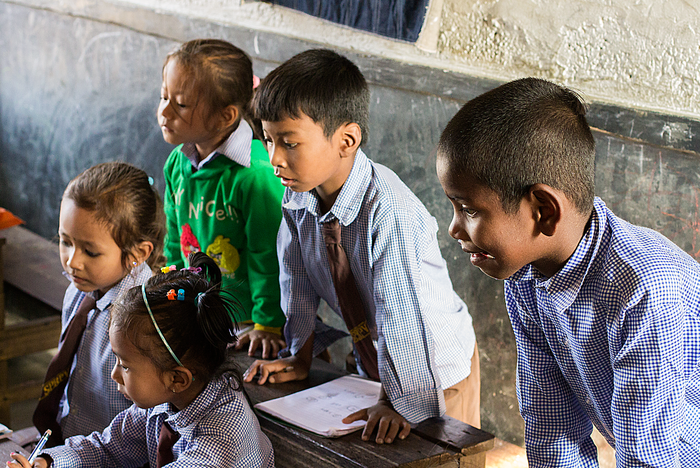
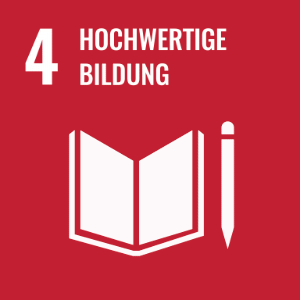
Nepal | Teach
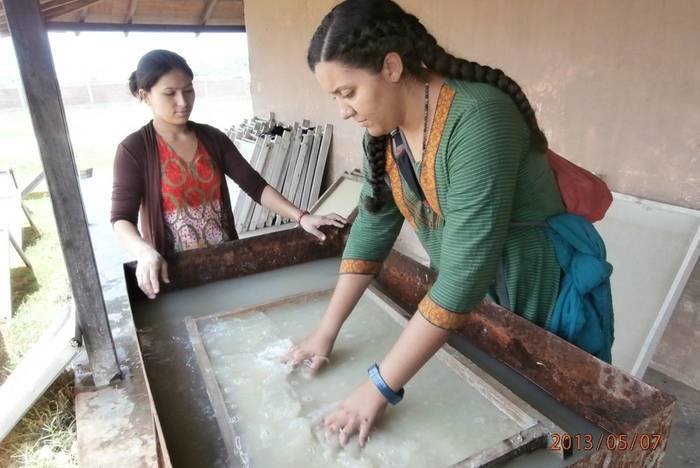
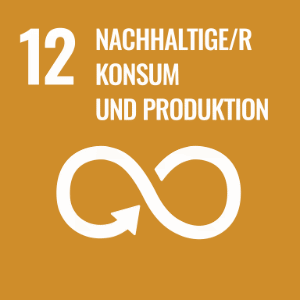
Nepal | community work

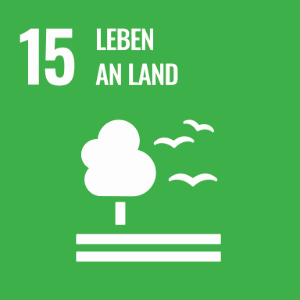
Nepal | big cats
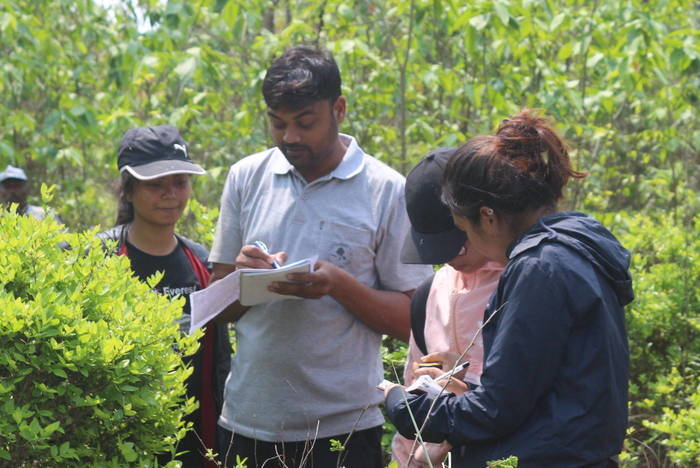

Nepal | wildlife

